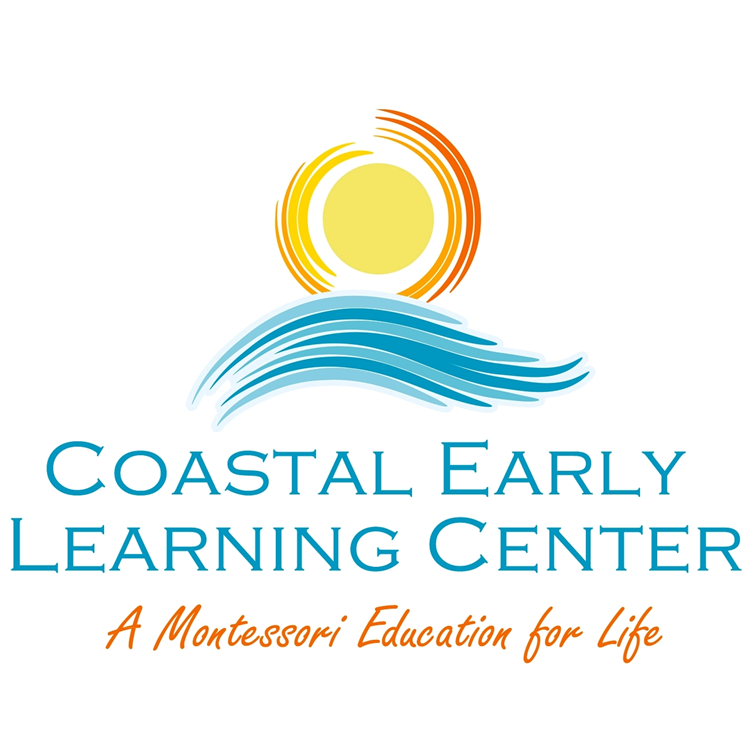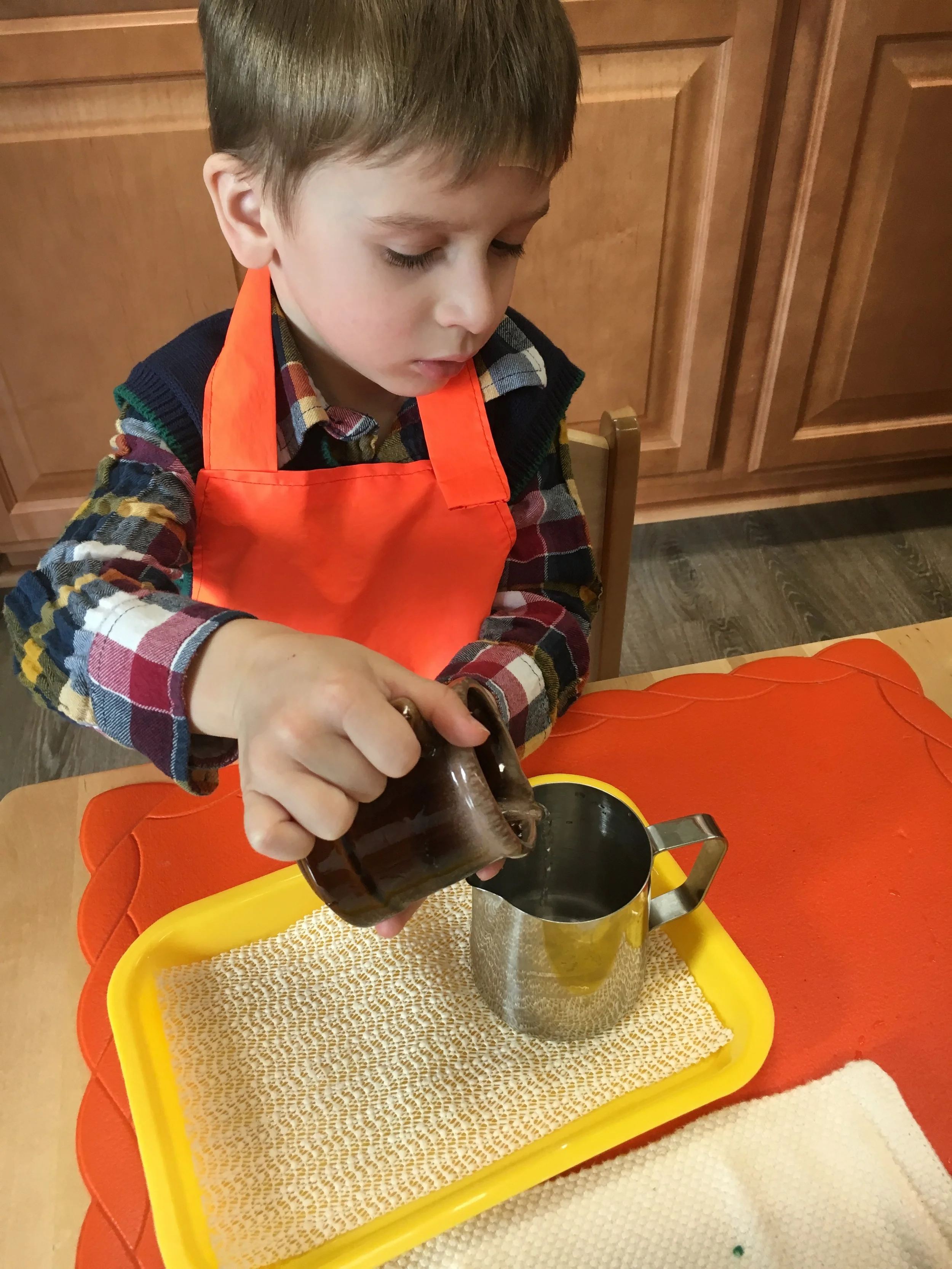Why choose a Montessori education for your child
The Montessori Method encourages hands-on, self-paced, collaborative, challenging, joyful learning. Montessori students become innovative, creative, independent thinkers who can solve problems and who ultimately bring positive change to the world. Google founders, Larry Page and Sergey Brin, credit their success to a Montessori education. Montessori students develop a love of learning, often not cultivated in more traditional educational settings.
As a Montessori parent and advocate, I was intrigued by the Montessori Method and the more I learned, the more it made perfect sense to me. Why wouldn’t we let small children try to do things for themselves, why wouldn’t we teach them the “how” and “why” instead of memorization, why wouldn’t we teach children at their own pace instead of insisting everyone learn the same thing, at the same age, in the same way? Montessori intrigued me because I remember the frustration and embarrassment in Math class when I was completely lost, so lost I didn’t even know what questions to ask and was too embarrassed to ask because everyone else seemed to “get it”. Montessori gave me hope that we could teach our children differently, give them a better foundation.
As my son turned two years old, I was insistent that he have that better foundation, a Montessori foundation. And I haven’t looked back since. I’ve watched him benefit in so many ways because of his Montessori educational experiences. His excitement for learning, academic abilities, compassion and self-motivation are all qualities he’s attained from this superb form of learning. Here are my top ten reasons (among others!) why I love the Montessori way of education and how Coastal Early Learning Center sets itself apart from the traditional way of learning:
1. Montessori is Not a Trend
So often educators jump from one trend to the next. Districts and schools spend thousands of dollars on “the new” math or reading program only to find two years later it did not produce the result expected. Providing the “right” educational curriculum has become a constant challenge. Montessori schools use a philosophy and tools that have been around for over a century. Montessori schools don’t flip-flop between programs because they don’t need to. Montessori education has been proven to be effective regardless of whether it is in a private or public school, regardless of the country in which it’s taught, or the socio economic status of the students. The philosophy that Maria Montessori developed years ago still works for our children today.
2. Montessori Fosters Independence and Self-Discipline
Everything about a Montessori classroom fosters independence and self-discipline. It is designed for students of diverse needs and abilities. Self-motivation is reinforced in all aspects of our classroom. There is both freedom and structure. Students choose their own activities and how long they will work on a specific task. Interruptions are minimized. Students are independent but also accountable for following-through on agreements and expectations. Teachers consistently enforce ground rules.
We start with the classroom that is prepared to allow the child to do for himself what an adult would often do for him. Enter a Primary classroom and you will see a three year old sweeping the floor with a child-sized broom, pouring his drink for snack at a table just his height or folding washcloths that are the right size for his hands. It is incredible to see the children beam with pride as they are able to “do it themselves” without asking for help from an adult. A Montessori classroom provides a prepared environment where children are able to develop independence and self-discipline.
Materials were created to be self-correcting. Students can identify a mistake in their thinking without having an adult point it out to them. Students in a Montessori classroom have the power to ask for help when they need it, as opposed to an adult telling the child when he needs help.
Students begin to realize that they have the intelligence and ability to do things for themselves. This is not only empowering to the child, but gives him an enormous boost of confidence.
3. Children Grasp the Idea Of “How” and “Why”
During the summer, students don’t just “lose” information because the summer is long, they lose information because in traditional preschools they’ve been taught to merely memorize the information. They are not actually understanding the concepts that are introduced. Often in math, we expect students to understand operations but never give them the how or the why. We come up with acronyms and mnemonic tools to help kids memorize the step without teaching why these strategies are even necessary. Montessori allows children to understand the how and the why with materials. The child is able to interact with concepts and ideas rather than simply memorize facts. Each lesson involves a hands-on approach to learning. Students frequently use all five senses in a Montessori classroom, and learn by asking questions, playing in and exploring the world around them. Learning doesn’t just come from lectures or listening, learning comes from doing and experiencing.
The materials are first introduced in the concrete form, therefore students are able to manipulate the materials, helping them to understand the information presented. Actually remembering it! Students can see a division problem occur as he or she divides each place value. The student has the ability to practice it over and over with the materials until it makes sense. Once the concept is grasped concretely, he can then move to the abstract and apply the concept.
4. Children are Taught at Their Own Individual Pace
It is unrealistic to expect all children the same age to study and progress through curriculum at the same pace, and each attain optimal results. It just doesn’t happen. One of the paramount benefits of Montessori is that it’s completely individualized. You never have to worry that your child is bored or frustrated. Montessori recognizes children learn best when they are able to learn at their own pace. Each child is given the freedom to use his curiosity and desire to learn to master the skills presented and move on to the next level at his pace rather than being forced to move on whether he has learned the concept or not. The result is a calm, peaceful structure to the classroom.
Teachers, or Directresses as Dr. Montessori refers to them, are there to guide, to present lessons, individually or in a small group, to make sure everyone is staying on task and moving through the curriculum, while mentoring the child to his potential. At the same time, the students drive the pace and the educational direction in a Montessori classroom.
5. Montessori Teaches Morals, Peace, Respect, Beauty of Diversity and Conflict Resolution
In the Montessori Method, the development of character is as important as the academic education. Children learn to take care of themselves, their environment, and each other. They learn to cook, clean, build, and garden, move gracefully, speak politely, and be considerate and helpful. This forms the basis of a person’s nature and characteristics, and something our current education system misses completely.
Peace education and conflict resolution is an important part of Montessori education as well. We have developed a curriculum to help children solve their own problems and learn conflict resolution skills. Montessori promotes peace among all of its students, both in school and out.
Montessori schools teach children about different cultures and people, promoting respect for diversity and for others. The Montessori Education Method believes in the importance of peace and promotes respect through its global education.
We also promote respect for the Earth, humans, and animals as part of the Montessori curriculum. Children will learn how to take care of the Earth and to respect its inhabitants.
These important areas of the Montessori curriculum affect how a child interacts with others. We teach them to care for themselves, their environment, and others, and how to be an active participant in their learning and environment.
6. Montessori is Designed According to Developmental Stages
Montessori classes are designed to respond optimally to key physical, emotional, social, and cognitive developmental stages, rather than solely emphasizing academic curriculum. All aspects of the classroom environment respond optimally to each age range.
- 0- 3 years old – emotional nurturing; clear boundaries and trust; gross and fine motor development; receptive and expressive language skills; motor planning and practical life skills; autonomy and joy in learning.
- 3-6 years old – all of the above plus, hands-on preparation for math and language; clear ground rules and accountability; sense of physical, mental, and temporal order; self-discipline; mutual respect and cooperation.
7. The Montessori Environment – Order & Process
A comprehensive and recognized sequence of Montessori materials is carefully designed. Children learn a sense of order and process, which provides a deep inner satisfaction from seeing their work through from start to completion. All classroom materials, furniture, and equipment are designed to meet the needs of each age range and to foster their independence and success. The classroom is designed with specific places for materials on shelves. Teachers give lessons, presenting the effective layout and manipulation of each material. Each work is returned to the same place upon completion. This sense of order facilitates learning and caters to the need for predictability. An ordered environment fosters security and confidence, encouraging channeled creativity, instead of chaos.
8. Montessori Truly is Child-Centered Learning
The Montessori Method understands that all children have an innate drive to learn and grow. Montessori teachers facilitate learning through the design of the class environment and by encouraging children to explore their own interests. Rather than directing learning, they facilitate and support learning. Teachers are guides. They encourage students to perform tasks at their own pace and ensure ground rules are followed. Teachers move throughout the classroom, observe closely and connect with students as needed, but work to stay as unobtrusive as possible. Children are respected and trusted as intelligent, capable people. Children move around the classroom freely, enjoying a busy, constructive hum of activity. Both individual concentration and positive peer interactions are encouraged.
9. Montessori Inspires Creativity
Giving children age-appropriate freedom and flexibility to choose their own activities and work at their own pace, encourages creativity. Focus on process rather than result cultivates the child’s innate joy in discovery and learning. Rather than textbooks and tests, a consistent focus on process encourages students to stretch their creative muscles and broaden the way they think about the world.
10. Montessori Gives Children a Foundation for Life-long Learning
Longtime Montessori students generally have strong self-awareness, self-acceptance, and social skills. Five year olds commonly have higher math and reading skills than public school counterparts. However, the benefit of learning with concrete materials is demonstrated most powerfully in higher education when students commonly demonstrate a seemingly innate understanding of advanced math, analytical capacity, creativity, and critical thinking. Studies have shown Montessori students become adults who are confident, creative, and independent problem solvers in a wide variety of endeavors from math and sciences to arts and humanities. They are also better prepared for later life academically, socially, and emotionally. In addition to scoring well on standardized tests, Montessori children are ranked above average on such criteria as following directions, turning in work on time, listening attentively, using basic skills, showing responsibility, asking provocative questions, showing enthusiasm for learning, and adapting to new situations.
I understand choosing what is best for your child is an enormous responsibility. It is important to not only choose what will prepare your child for the next grade level, but to choose a learning environment that will also equip him for everyday life, giving him healthy life skills which give him purpose and enables him to be a contributing member of his family, classroom, and community. Montessori does this and so much more!



